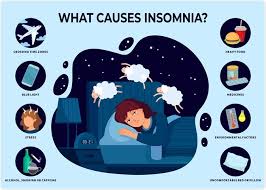Hypnosis for Anxiety and Depression: Unlocking the Power of the Mind
Anxiety and depression are two prevalent mental health conditions that affect millions of people worldwide. They can be debilitating, impacting every aspect of a person’s life, from relationships to work performance. While traditional treatments such as therapy and medication have proven effective, there is a growing interest in alternative approaches like hypnosis.
Hypnosis, also known as hypnotherapy, is a therapeutic technique that utilizes the power of suggestion to access the subconscious mind. It induces a state of deep relaxation and heightened focus, allowing individuals to explore their thoughts, feelings, and behaviors on a deeper level.
So how does hypnosis help with anxiety and depression? Let’s delve into some key aspects:
- Identifying Root Causes: Hypnotherapy aims to uncover the underlying causes of anxiety and depression by accessing the subconscious mind. Often, these conditions are rooted in past experiences or unresolved traumas that continue to affect an individual’s emotional well-being. By exploring these hidden aspects during hypnosis sessions, individuals can gain insight into their condition and work towards healing.
- Changing Negative Thought Patterns: Anxiety and depression often stem from negative thought patterns that become deeply ingrained in our minds. Hypnosis allows individuals to challenge these negative beliefs by replacing them with positive suggestions. Through guided imagery and visualization techniques, individuals can reframe their thoughts, fostering a more optimistic outlook on life.
- Enhancing Coping Mechanisms: Hypnotherapy equips individuals with valuable coping mechanisms to manage anxiety and depression symptoms effectively. During hypnotic trance states, therapists can teach relaxation techniques, self-soothing strategies, and methods for reframing negative thoughts in real-time situations. These tools empower individuals to regain control over their emotions when faced with triggers or challenging circumstances.
- Boosting Self-Esteem: Low self-esteem often accompanies anxiety and depression. Hypnosis can help rebuild self-confidence and self-worth by reinforcing positive affirmations and encouraging self-acceptance. By addressing the root causes of low self-esteem, individuals can develop a healthier sense of self and improve their overall mental well-being.
- Complementing Traditional Treatments: It is important to note that hypnosis should not replace traditional treatments for anxiety and depression but rather complement them. Hypnotherapy can be used in conjunction with therapy and medication to enhance the overall effectiveness of treatment. Many individuals find that combining these approaches leads to better outcomes and a more comprehensive healing experience.
While hypnosis shows promise as an adjunct therapy for anxiety and depression, it is crucial to seek guidance from a qualified and experienced hypnotherapist. They will customize the sessions to address individual needs, ensuring a safe and effective treatment plan.
If you are struggling with anxiety or depression, it may be worth exploring the potential benefits of hypnotherapy. Remember, everyone’s journey is unique, so finding the right approach that resonates with you is essential. Hypnosis has the potential to unlock the power of your mind, helping you overcome these challenges and embark on a path towards improved mental well-being.
Frequently Asked Questions About Hypnosis for Anxiety and Depression
- Does hypnosis help with anxiety and depression?
- What is the success rate of hypnosis for anxiety?
- How long does it take for hypnosis to work for anxiety?
- Does hypnosis really work for anxiety?
Does hypnosis help with anxiety and depression?
Hypnosis has shown promise as a complementary therapy for anxiety and depression. While it may not be a standalone solution, it can be an effective tool in managing symptoms and promoting overall well-being.
Research suggests that hypnotherapy can help individuals with anxiety and depression in several ways:
- Relaxation and Stress Reduction: Hypnosis induces a state of deep relaxation, which can help reduce stress and anxiety levels. This relaxation response can have a calming effect on the mind and body, alleviating symptoms associated with these conditions.
- Cognitive Restructuring: One of the primary benefits of hypnosis is its ability to access the subconscious mind and reframe negative thought patterns. By replacing negative beliefs with positive suggestions during hypnotic trance states, individuals can challenge self-defeating thoughts and develop more constructive thinking patterns.
- Emotional Healing: Hypnotherapy can aid in uncovering and resolving underlying emotional issues that contribute to anxiety and depression. By exploring past experiences or traumas that may be influencing current mental health struggles, individuals can work towards healing emotional wounds.
- Self-Empowerment: Hypnosis empowers individuals by teaching them self-help techniques to manage their symptoms outside of therapy sessions. These techniques may include self-hypnosis, relaxation exercises, or visualization practices that promote emotional resilience.
- Enhancing Treatment Outcomes: When used alongside traditional treatments like therapy or medication, hypnosis has been found to enhance the overall effectiveness of treatment for anxiety and depression. It complements other therapeutic approaches by addressing specific issues at a subconscious level.
It’s important to note that while hypnosis has shown promise in helping with anxiety and depression, individual results may vary. It is recommended to consult with a qualified hypnotherapist or mental health professional who specializes in this area to determine if hypnotherapy is suitable for your specific needs.
Remember that seeking professional guidance is crucial for developing an appropriate treatment plan tailored to your unique circumstances.
What is the success rate of hypnosis for anxiety?
The success rate of hypnosis for anxiety can vary depending on several factors, including the individual’s responsiveness to hypnosis, the severity of their anxiety, and their willingness to actively engage in the therapeutic process. It is important to note that research on the effectiveness of hypnosis for anxiety is still evolving, and individual results may vary.
That being said, many studies have shown promising results in using hypnosis as a complementary therapy for anxiety. According to a meta-analysis published in the International Journal of Clinical and Experimental Hypnosis, hypnosis was found to be effective in reducing anxiety symptoms across various populations.
Furthermore, a study published in The American Journal of Clinical Hypnosis found that hypnotherapy combined with cognitive-behavioral therapy (CBT) led to significant reductions in anxiety levels compared to CBT alone. This suggests that hypnosis can enhance the effectiveness of traditional therapeutic approaches.
Additionally, individual case studies and anecdotal evidence often report positive outcomes when using hypnotherapy for anxiety. Many individuals find that hypnosis helps them gain insights into their triggers, manage symptoms more effectively, and develop coping mechanisms.
It is important to remember that while hypnosis can be a valuable tool in managing anxiety, it is typically used as part of a comprehensive treatment plan. Combining hypnotherapy with other evidence-based therapies such as cognitive-behavioral therapy or medication may yield better results.
Ultimately, the success rate of hypnosis for anxiety will depend on various factors unique to each individual. It is recommended to consult with a qualified and experienced hypnotherapist who can assess your specific situation and develop an appropriate treatment plan tailored to your needs.
How long does it take for hypnosis to work for anxiety?
The duration of hypnosis treatment for anxiety can vary depending on several factors, including the severity of the anxiety, individual responsiveness to hypnosis, and the specific approach used by the hypnotherapist. It’s important to understand that hypnosis is not a quick fix or a one-size-fits-all solution. It typically requires consistency, commitment, and collaboration between the individual and the hypnotherapist.
Some individuals may experience positive changes after just a few sessions, while others may require more prolonged treatment. Generally, it is recommended to have multiple sessions spread over several weeks or months to allow for deep exploration and gradual progress.
During hypnosis sessions for anxiety, the hypnotherapist will work with you to identify underlying causes and triggers of your anxiety. They will then guide you through relaxation techniques and suggest positive changes in your thought patterns and responses. The goal is to help you develop new coping mechanisms and strategies to manage anxiety more effectively.
It’s important to note that everyone responds differently to hypnosis, so results may vary from person to person. Some individuals may notice significant improvements in their anxiety symptoms relatively quickly, while others may experience more gradual progress over time.
It’s also worth mentioning that hypnosis is often used as part of a comprehensive treatment plan for anxiety, alongside other therapeutic approaches such as cognitive-behavioral therapy (CBT) or medication if necessary. Combining different therapies can enhance overall outcomes and provide a more holistic approach to managing anxiety.
Ultimately, the duration of hypnosis treatment for anxiety will depend on individual circumstances. It is essential to work closely with a qualified hypnotherapist who can tailor the sessions according to your specific needs and monitor your progress along the way.
Does hypnosis really work for anxiety?
Hypnosis has shown promise as a complementary therapy for anxiety, but its effectiveness may vary from person to person. Research suggests that hypnotherapy can be beneficial in reducing anxiety symptoms and improving overall well-being. However, it is important to note that results may not be immediate or guaranteed for everyone.
Hypnosis works by accessing the subconscious mind and helping individuals explore and address the underlying causes of their anxiety. By changing negative thought patterns and promoting relaxation, hypnotherapy aims to alleviate anxiety symptoms and provide individuals with coping mechanisms.
Numerous studies have demonstrated positive outcomes when using hypnosis for anxiety. For example, a meta-analysis published in the Journal of Consulting and Clinical Psychology found that hypnosis was effective in reducing anxiety compared to control groups who did not receive hypnotherapy.
It is worth mentioning that while hypnosis can be beneficial for many individuals, it should not replace traditional treatments such as therapy or medication. Hypnotherapy is often used as an adjunct therapy to support existing treatment plans.
It is essential to work with a qualified and experienced hypnotherapist who can tailor the sessions to your specific needs. They will guide you through relaxation techniques, suggest positive affirmations, and help you develop strategies to manage anxiety symptoms effectively.
Ultimately, the effectiveness of hypnosis for anxiety may depend on various factors such as individual responsiveness, commitment to the process, and the severity of anxiety symptoms. It is advisable to consult with a mental health professional who can assess your specific situation and guide you towards appropriate treatment options.



